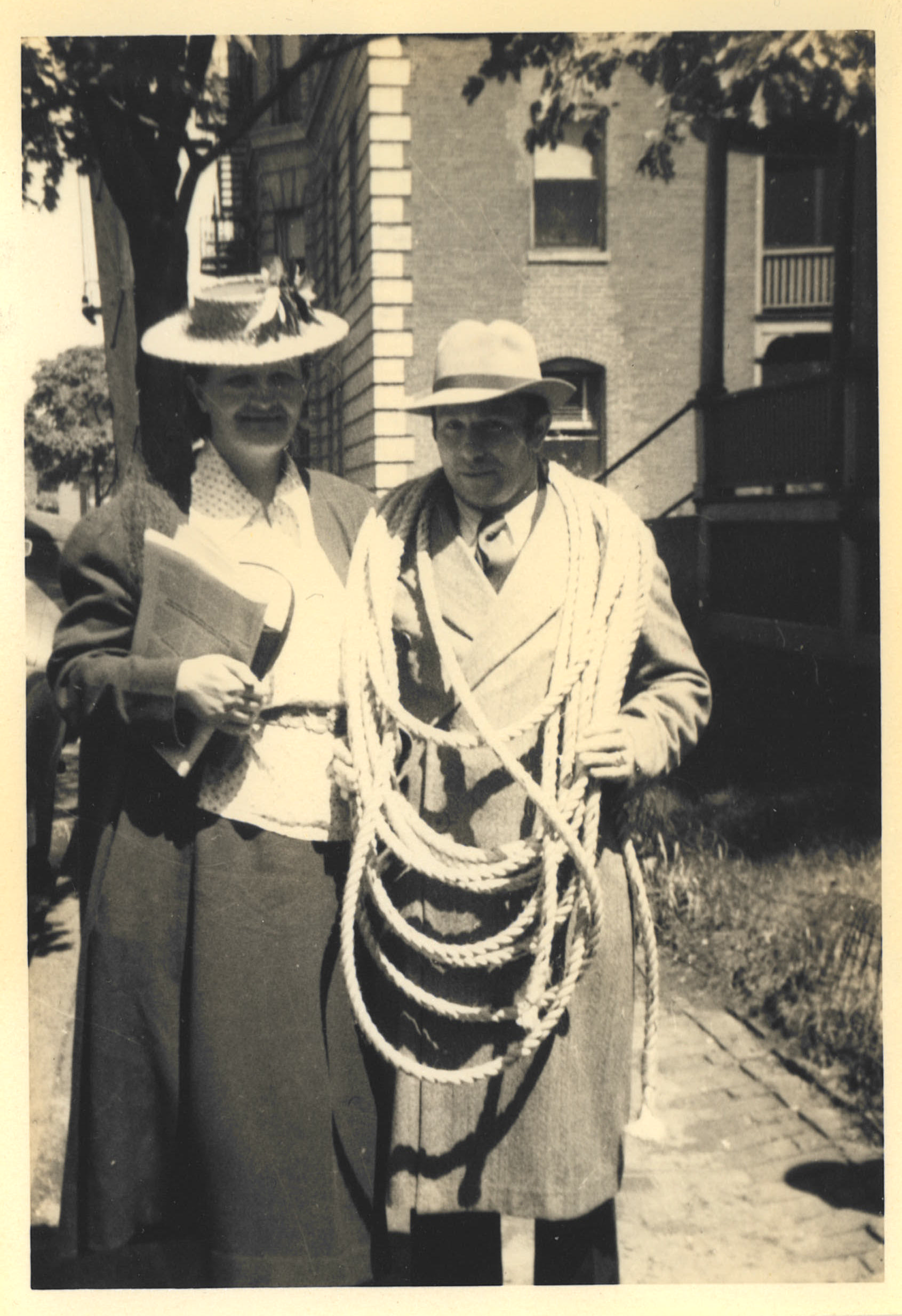"In 1956 Cecilia Payne-Gaposchkin became the first woman to be promoted to full professor from within the Faculty of Arts and Sciences and soon after was appointed the third chair, making her the first woman to head a department at Harvard University" (Scholton). This marked another major step towards gender equality in Harvard and the field of astronomy.
Payne (right) on the Radcliffe Panorama [Image Credit Harvard Hollis].
Payne was also commended by many astronomers, and Otto Struve, a Russian-American Astronomer, said she wrote "undoubtedly the most brilliant PhD thesis ever written in astronomy" (Scholton).

